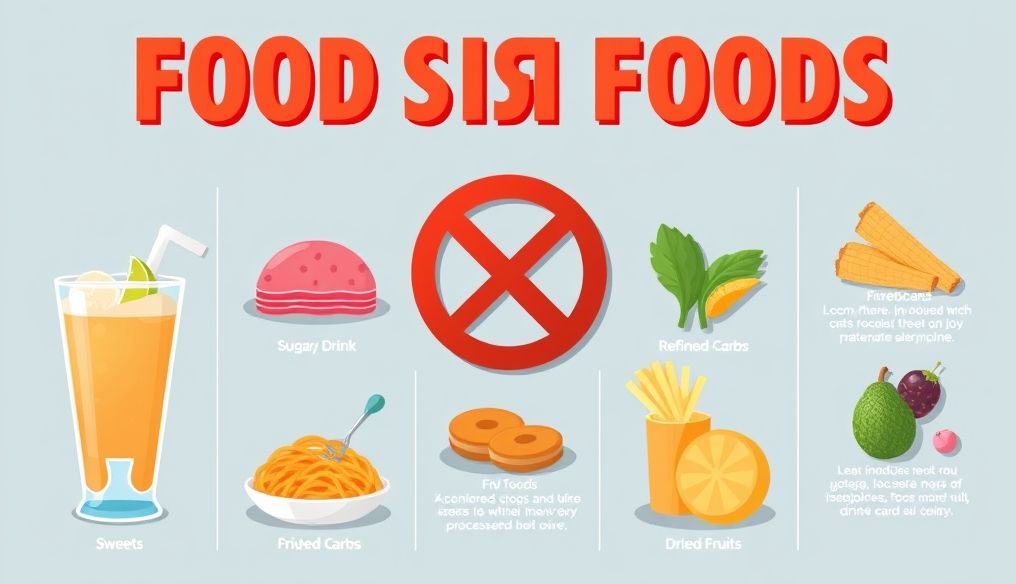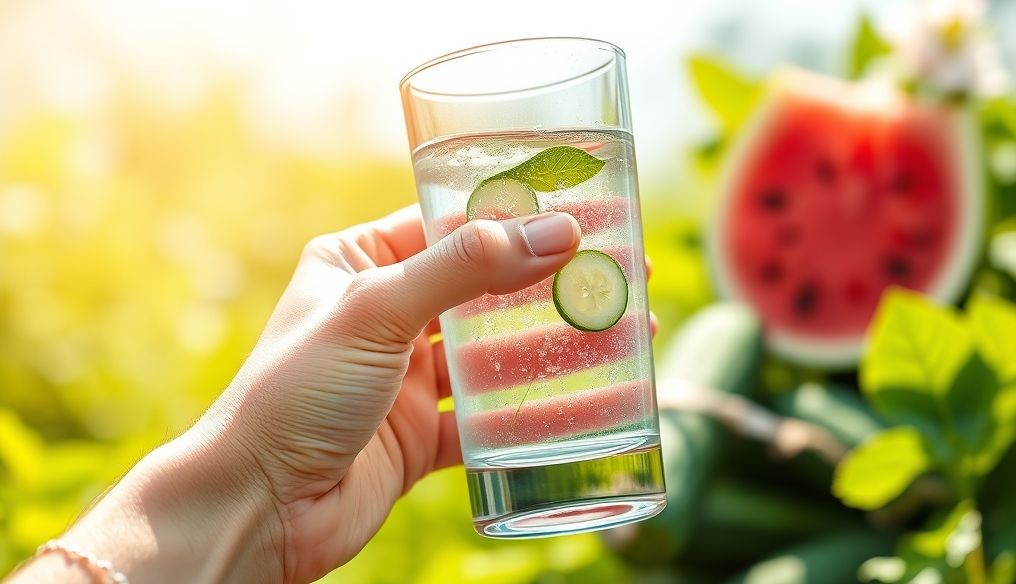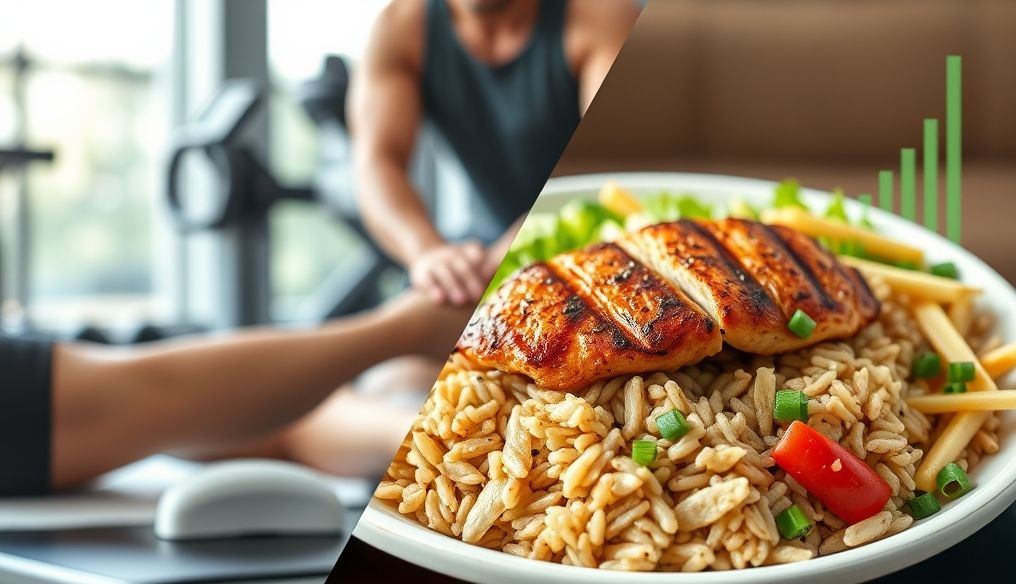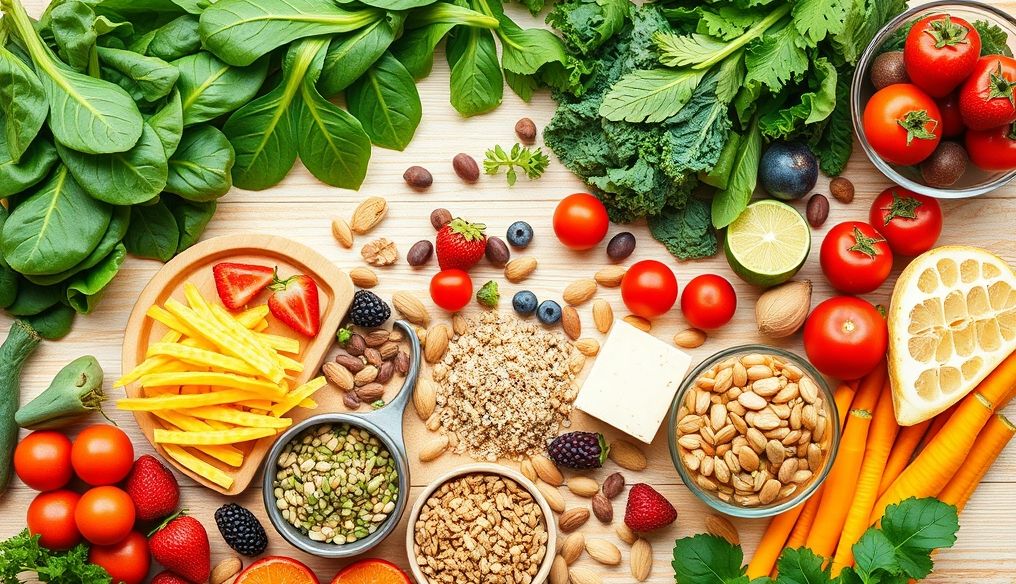What foods should diabetics avoid to maintain stable health?
Diabetes requires careful management of blood sugar levels, and diet plays a crucial role in this. Avoiding certain foods can help maintain stable blood sugar levels and prevent complications. In this article, we will review in detail the foods that diabetics should avoid, as well as provide healthy alternatives.
Chapter 1: Diabetes, Its Types, and the Importance of Diet
What is Diabetes?
Diabetes is a chronic condition that affects how the body processes blood sugar (glucose). In diabetes, either the body does not produce enough insulin (Type 1) or it cannot effectively use the insulin it produces (Type 2). This leads to high blood sugar levels, which can lead to serious health complications.
Types of Diabetes
- Type 1: Occurs due to the destruction of insulin-producing beta cells in the pancreas.
- Type 2: Occurs due to insulin resistance, where cells do not respond properly to insulin.
- Gestational Diabetes: Occurs during pregnancy and usually disappears after childbirth, but it increases the risk of developing Type 2 later.
- Prediabetes: A condition in which blood sugar levels are higher than normal but not high enough to diagnose diabetes.
The Importance of Diet for Diabetics
A healthy diet is the cornerstone of managing diabetes. A balanced diet helps to:
- Maintain blood sugar levels within the normal range.
- Manage weight.
- Reduce the risk of diabetes complications, such as heart, kidney, and nerve diseases.
Chapter 2: Sugary Drinks
Soft Drinks
Soft drinks are full of added sugar, which leads to a rapid rise in blood sugar levels. One cup of soft drinks can contain more than 10 teaspoons of sugar.
Healthy Alternatives: Water, water flavored with natural fruits, unsweetened tea, black coffee.
Canned Fruit Juices
Although they are made from fruit, canned fruit juices often contain large amounts of added sugar and are low in fiber. This makes them less healthy than whole fruit.
Healthy Alternatives: Whole fruit (in moderation), vegetable juices, fresh fruit juices diluted with water.
Energy Drinks
Energy drinks contain high amounts of caffeine and sugar, leading to a rapid rise in blood sugar levels and increasing the risk of heart problems.
Healthy Alternatives: Green tea, black coffee (in moderation), cold water.
Chapter 3: Sweets and Added Sugars
Processed Sweets
Processed sweets such as cakes, cookies, and candies contain large amounts of added sugar and unhealthy fats. These foods can lead to a rapid rise in blood sugar levels and weight gain.
Healthy Alternatives: Fresh fruits, Greek yogurt with fruits, homemade sweets using natural sweeteners in moderation.
Honey, Molasses, and Maple Syrup
Although they are considered natural alternatives to sugar, honey, molasses, and maple syrup still raise blood sugar levels. They should be consumed in very small amounts.
Healthy Alternatives: Stevia, Erythritol, Monk Fruit.
Jams and Jellies
Jams and jellies often contain large amounts of added sugar. Look for varieties that are low in sugar or made without added sugar.
Healthy Alternatives: Homemade jam using fresh fruits and natural sweeteners, natural peanut butter.
Chapter 4: Refined Carbohydrates
White Bread
White bread is made from refined flour, which is digested quickly and leads to a rapid rise in blood sugar levels. It also lacks dietary fiber.
Healthy Alternatives: Whole grain bread, whole wheat bread, rye bread.
White Rice
White rice has the same effect as white bread on blood sugar levels. It also lacks dietary fiber.
Healthy Alternatives: Brown rice, quinoa, barley.
White Pasta
White pasta is made from refined flour and leads to a rapid rise in blood sugar levels.
Healthy Alternatives: Whole wheat pasta, pasta made from legumes (such as lentils or chickpeas).
Chapter 5: Fried Foods
French Fries
French fries are high in saturated fat and carbohydrates, making them an unhealthy choice for diabetics. They are also often very salty.
Healthy Alternatives: Baked potatoes, baked sweet potatoes, roasted vegetables.
Fried Chicken
Fried chicken contains large amounts of saturated fat and carbohydrates from the coating. It can lead to high blood sugar levels and weight gain.
Healthy Alternatives: Grilled chicken, boiled chicken, baked chicken.
Other Fried Foods
Other fried foods such as onion rings and samosas contain large amounts of saturated fat and carbohydrates. They should be avoided or consumed in very small amounts.
Healthy Alternatives: Grilled foods, baked foods, steamed foods.
Chapter 6: Processed Foods
Fast Food
Fast food is often high in saturated fat, added sugars, and sodium. It can lead to high blood sugar levels, weight gain, and an increased risk of heart disease.
Healthy Alternatives: Homemade meals using healthy ingredients, salads, sandwiches made with whole grain bread and vegetables.
Canned Foods
Canned foods often contain large amounts of sodium and added sugar. Read food labels carefully and choose varieties that are low in sodium and sugar.
Healthy Alternatives: Fresh foods, frozen foods (without additives).
Processed Meats
Processed meats such as sausages and canned meats often contain large amounts of sodium, saturated fat, and preservatives. They should be avoided or consumed in very small amounts.
Healthy Alternatives: Lean meats grilled or boiled, chicken, fish, legumes.
Chapter 7: Dried Fruits
Raisins
Raisins contain a high percentage of natural sugar, which may lead to high blood sugar levels if consumed in large quantities.
Healthy Alternatives: Fresh fruits (in moderation), berries, apples, pears.
Dates
Dates are rich in natural sugar and carbohydrates. Although they contain some nutrients, they should be eaten very sparingly.
Healthy Alternatives: Fresh fruits (in moderation), avocados, vegetables.
Dried Apricots
Dried apricots contain a high percentage of natural sugar and carbohydrates. They should be eaten very sparingly.
Healthy Alternatives: Fresh fruits (in moderation), vegetables, nuts and seeds.
Chapter 8: Additional Tips for Managing Diabetes Through Diet
- Consult a nutritionist: A nutritionist can help you develop a personal diet plan tailored to your individual needs.
- Monitor blood sugar levels regularly: This helps you understand how different foods affect blood sugar levels.
- Eat small, balanced meals regularly: This helps to keep blood sugar levels stable.
- Focus on fiber-rich foods: Fiber helps slow down the absorption of sugar in the blood.
- Choose healthy fats: Healthy fats like olive oil, avocado, and nuts help improve heart health.
- Drink plenty of water: Water helps keep the body hydrated and helps regulate blood sugar levels.
- Read food labels carefully: This helps you choose healthy foods and avoid foods that are high in added sugar and unhealthy fats.
- Engage in regular physical activity: Physical activity helps improve insulin sensitivity and lower blood sugar levels.
Conclusion
Managing diabetes requires following a healthy and balanced diet. Avoiding sugary foods, refined carbohydrates, fried foods, and processed foods can help keep blood sugar levels stable and prevent complications. Consult a nutritionist to develop a personal diet plan tailored to your individual needs.




